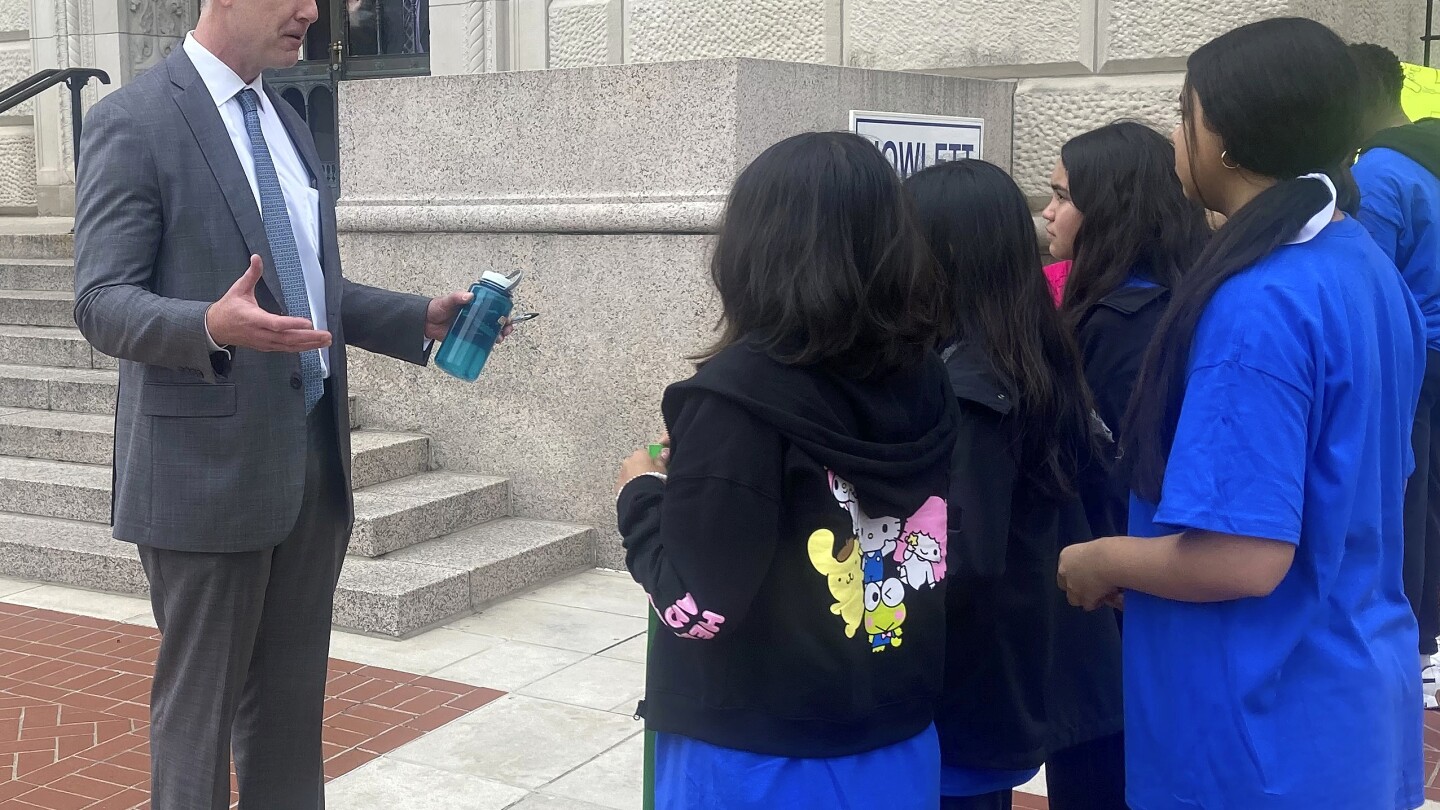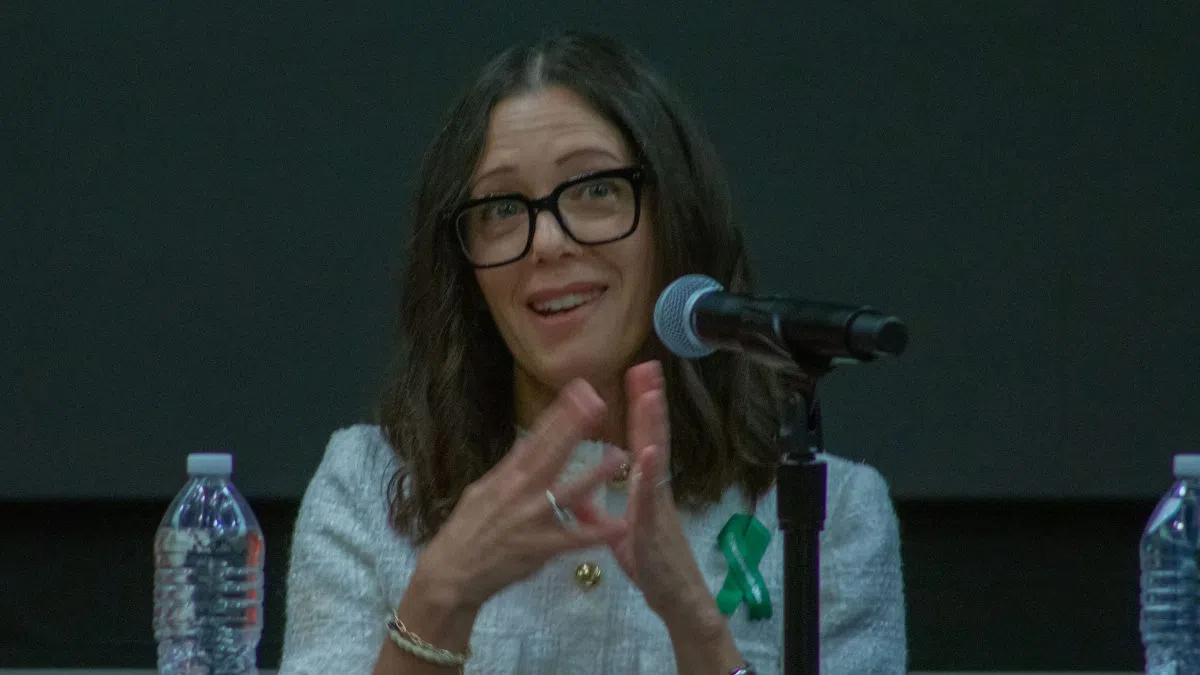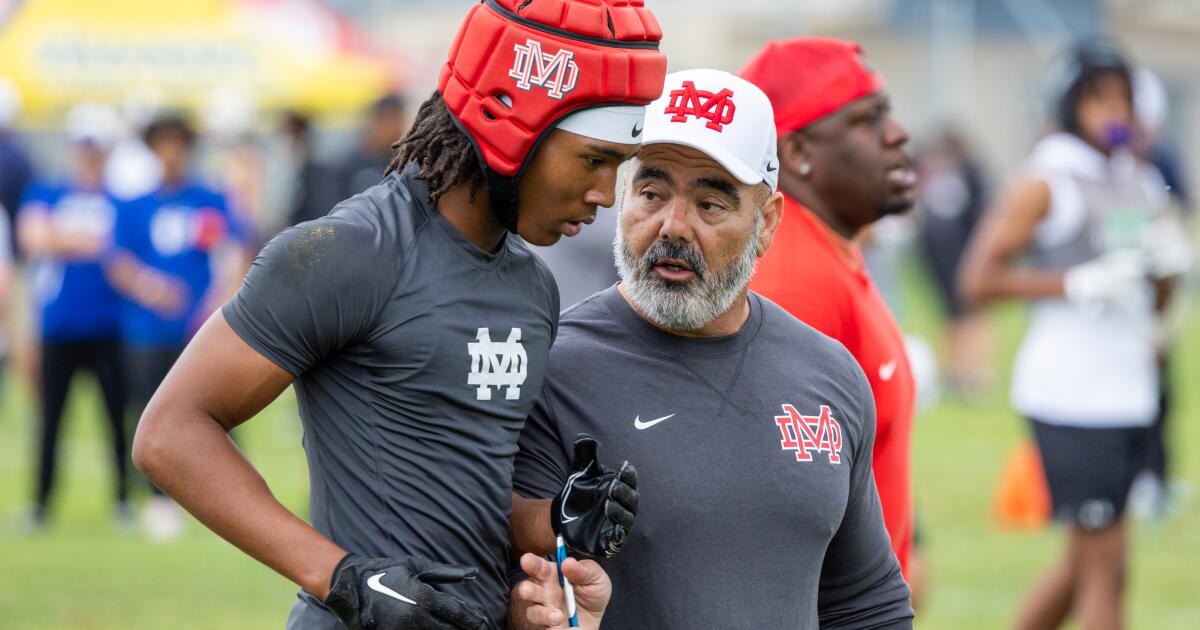Illinois
Illinois lawmakers scrutinize private school scholarships without test-result data

SPRINGFIELD, Ill. (AP) — Critics of an Illinois program providing private school scholarships say there’s no proof it improves academic achievement. But state education officials, delayed by COVID-19’s school disruptions, have never reported the academic performance of participating students as required by the Invest in Kids Act, a hot issue as lawmakers reconvene Tuesday.
The five-year-old program expires at year’s end. Supporters want it reauthorized before the General Assembly adjourns for the year on Thursday. Opponents say it’s a drain on public education and want it ended.
The Invest in Kids Act requires participants to take the same standardized test as their public-school counterparts each spring to measure their progress and judge the program’s success. Critics led by teachers’ unions wonder where the numbers are.
They haven’t been collected.
The coronavirus pandemic essentially shut down annual statewide student assessments in 2020 and 2021, the first two years of Invest in Kids. The first report measuring progress among program participants won’t come out until early next year, education officials said.
“Unfortunately for the thousands of Invest in Kids families, it appears that Gov. (J.B.) Pritzker’s administration either failed to complete, or failed to share these assessments four years in a row, which has emboldened opponents to point to the lack of data the administration refused to collect,” Senate Minority Leader John Curran, a Republican from Downers Grove, said in a statement to The Associated Press.
Scholarships are funded from private contributions which yield a 75% state income tax credit in a program limited to $75 million in credits annually. In five years, about 40,000 needs-based scholarships have been awarded.
Reauthorization of the program never gained traction in the spring session and spilled over into the fall. Republicans and Democrats with large numbers of supportive constituents want to see Invest in Kids extended.
A scaled down program limiting annual credits awarded to $50 million has emerged and Curran said he would agree to it.
The teachers’ unions and other opponents call it a voucher system that siphons money from public schools. Pritzker, a Democrat, indicated in October that he would sign reauthorization legislation, which incensed the unions. The Illinois Federation of Teachers and the Illinois Education Association issued a joint statement that “there is no evidence that these policies are beneficial for students.”
COVID-19 closed schools in spring 2020, the first year scheduled for assessments. The virus’ lingering effects a year later discouraged participation; it was so low and unrepresentative of the student population as to be too unreliable for comparison to other years, said Jaclyn Matthews, spokesperson for the Illinois State Board of Education.
Research group WestEd, whose contract for the analysis is $640,275, couldn’t start until it had 2022 results; its inaugural report will indicate whether students improved on 2023 tests.
The unforeseen testing interruption brought about by COVID-19 doesn’t sway Dan Montgomery, president of the Illinois Federation of Teachers, who maintains Invest in Kids is a voucher program and pointed to several national studies finding detrimental effects on students.
“There’s no reason to think that this voucher scheme would be any different than others across the country,” Montgomery said. “They take money out of the public coffers for public education, the schools that receive this money are not accountable, some of them exclude students with special needs. It’s not a good use of public dollars.”
Bridget Shanahan, spokesperson for the Illinois Education Association, stood by the group’s position. “There is no data,” she said.
In response to an AP public records request for assessment results, the education board said it anticipated issuing a report in February, two months after the program’s expected expiration. Nothing prevents the lawmakers from restarting the program during its spring session, but there would be a disruption in scholarships.

Illinois
Pritzker pledges to expand access to mental health care in Illinois

Service providers, state agency officials joined governor for Springfield panel
By DILPREET RAJU
Capitol News Illinois
draju@capitolnewsillinois.com
SPRINGFIELD – In the middle of Mental Health Awareness Month, Gov. JB Pritzker and Lt. Gov. Juliana Stratton hosted a panel in Springfield this week at which he pledged to expand the state’s behavioral health services.
With several dozen services providers from around the state in attendance, Pritzker and panelists floated ideas to improve access to mental health care for Illinoisans, like mandating a social worker be in every school and drafting a “Mental Health Bill of Rights” – a document that will affirm the state’s mental health system as one for people of all backgrounds.
Pritzker said it’s necessary to buck trends of the past, when discussions surrounding mental health were quickly swept under the rug, in private or public life – and received little government attention.
“If you could roll the time backward 10 years, very few people talked publicly about mental health challenges that they personally were having,” Pritzker said during the panel, which was attended by a Capitol News Illinois reporter. “We have to just think about the individual who has no alternative – they don’t have choices – and we have to give them opportunities to get help.”
The governor spoke about his personal experiences and recounted the struggles his mother – who he credits as spurring his political career – had with alcohol as he was growing up in the 1970s. Sue Pritzker died in 1982, leaving the future governor an orphan at 17 years old.
“She drank to self-medicate,” he said. “She was somebody who was an activist, a caregiver and she was a widow with three young children when my father died.”
Pritzker emphasized that his mother had the money to access care, given the family’s enormous wealth, but he said shame and guilt prevented her from seeking professional aid.
“Even with the resources, partly because of stigma, it’s hard to go seek help,” Pritzker said. “In some ways, my experience with that instilled in me a desire to try to address the challenges that are now referred to as behavioral health.”
He and Stratton suggested mental and physical health care should be considered with equal weight. Stratton, who chairs the recently formed Healing-Centered Illinois Task Force, also said mental health care needs to be accessible to everyone, regardless of race or income.
“It’s not okay if just some communities are healing and others aren’t,” she said. “If some communities are saying, ‘Now, it’s accessible,’ but others are left behind.”
As stigma continues to decrease for those seeking mental health care, existing practitioners can’t keep up with the rising need. More than half of respondents – 56 percent – to the American Psychological Association’s 2023 “Pulse” survey, said they had no openings for new patients.
Illinois officials have responded by easing barriers to enter the profession in recent years. The National Association of Social Workers Illinois Chapter earlier this year praised a 2021 law that did away with a previously mandated test for licensure that the organization said was biased.
Since the law took effect, the number of licensed social workers in Illinois has more than doubled in two years. As of early December, there were more than 10,000 LSWs in Illinois, though that figure does not include licensed clinical social workers or school social workers.
NASW-IL noted that 12 percent of those LSWs came from out of state. Pritzker, in 2022, signed legislation that made it easier for behavioral health workers licensed in other states to become licensed in Illinois and enabled in-state providers with lapsed licenses to easily get reinstated.
Read more: Pritzker signs bill to expand mental health workforce | Amid record overdoses and drug counselor shortage, workforce expansion program aims to fill gap
On Wednesday, Pritzker credited “greater investments” in mental health – such as being able to use American Rescue Plan Act dollars to expand services and creating the state’s Children’s Behavioral Transformation Initiative – to Illinois’ improving financial picture, though he added, “there’s a whole lot more to do.”
“You can’t do any of this stuff unless your fiscal health is such that you can make major investments,” he said. “And we have so much more to do in that regard.”
Read more: With recession fears subsiding, new state economic forecast expects ‘firm but steady growth’ | Pritzker launches children’s behavioral health initiative
Pritzker wondered aloud why the state isn’t putting more social workers in schools. Hopeful Futures Campaign, a childhood mental health advocacy group, reported Illinois only had one school social worker for nearly every 750 students in 2022 – a caseload nearly three times the Illinois State Board of Education’s recommended ratio.
“We’ve got to make strides with a social worker in every school,” Pritzker said. “I know we say we can’t afford it, but I don’t know why we aren’t making that a high priority.”
Child welfare expert Dana Weiner, chief of the state’s Children’s Behavioral Health Transformation Initiative, said the state is crafting a new social work pilot program.
“We’re working on developing a pilot for in-home behavioral health aides for young people who have autism spectrum disorders and behavioral health needs,” she said.
No timetable was given on when such a pilot might be introduced.
Weiner announced the state is drafting a “Mental Health Bill of Rights” – also without a timeline – that will eventually “serve as a declaration of our aspirations for an improved mental health service system,” she said.
“Someday, when we get there, (it will) grant all Illinoisans the assurance that they can seek help without stigma in their community, in their language in their culture, and that they have access to timely and effective services and that they know where to go for help,” she said.
A day after the event, House Bill 5457, which would require agencies that license behavioral health workers to “allow reasonable accommodations for applicants for whom English is not their primary language and a test in their primary language test is not available,” passed the Senate and awaits Pritzker’s approval.
Hannah Meisel contributed.
Capitol News Illinois is a nonprofit, nonpartisan news service covering state government. It is distributed to hundreds of print and broadcast outlets statewide. It is funded primarily by the Illinois Press Foundation and the Robert R. McCormick Foundation, along with major contributions from the Illinois Broadcasters Foundation and Southern Illinois Editorial Association.
Illinois
In-state official visit coming up is huge for the Illinois football defense

Illinois football wants a nasty front seven on defense, and we are looking to add an in-state talent to help with that cause.
For the 2024 season, the Illini are patching together a defensive line via the transfer portal. We have some young players who came into the program, but they will be fully unleashed on the Big Ten in 2025.
Illinois also has a few solid outside linebackers who will tear apart opposing offenses. I am excited to see what Alec Bryant, Seth Coleman, Gabe Jacas, and Company can do this season.
Depth is an issue for the outside linebacker position moving forward, though. Illinois has seven outside linebackers on the roster right now, and four out of the seven outside linebackers are at least a junior. The Illini need to bolster the position with more incoming young talent.
Landing someone like Cameron Brooks would be great for the Illini. He is a 6-foot-3, 258-pound edge from Homewood-Flossmoor High School in Illinois. He is rated as a three-star recruit and ranked as the No. 1053 player in the class of 2025. He is also the No. 78 edge in the country and the No. 30 player coming out of the state of Illinois.
Brooks seems to be narrowing the scope of his recruitment. He has official visits set up to Kansas State and Kansas on January 21 and January 14, respectively. Brooks also has one more visit set up. That visit is to Illinois on June 7. We get his first visit of the summer.
Brooks is a fun football player to watch. Most of the high school athletes are so big and physically overpowering that they are going to look good on tape. Brooks’ hudl tape is different.
What stood out to me is the football IQ. There was a clip early on that the offense was running a screen play, and Brooks was able to sniff it out. If he didn’t realize it was a screen, the play would have gone for a touchdown. Instead, he made the tackle and forced a fumble.
Illinois visit was 🔥🔥🔥🔥🔥 #ILL @CoachJamison @CoachGriffith3 @Recruit2Illini pic.twitter.com/6AKtzgKIut
— Cameron Brooks (@cambrooks2025) February 1, 2024
When I look at the Illinois roster, I can see Brooks getting early snaps at Illinois. Coleman is a senior, so he is gone after this season. Bryant, Daniel Brown, and Jacas are all juniors, so 2025 will be their last year at Illinois.
The Illini then have Mason Muragin, Joe Barna, and Pat Farrell on the roster, all of whom are freshmen.
I imagine Brooks comes in and redshirts in 2025. That would make sense because of the roster construct. As a redshirt freshman, who knows what the roster looks like at outside linebacker. There are only three players on the roster who would be on the team in 2026, and those players haven’t proved anything.
I like Brooks’ game. This kid could be pretty good at the next level. Honestly, I am surprised he isn’t more highly touted. I think he has a ton of potential.
Next. Illinois football adding a wrecking ball defensive lineman from the transfer portal. Illinois football adding a wrecking ball defensive lineman from the transfer portal. dark
Illinois
Penn State Baseball To Face Illinois In Big Ten Tournament

Enter a search term for instant results
Enter a search term for instant results

Penn State baseball’s season isn’t over yet, folks.
After sweeping Maryland on the road this weekend, the Nittany Lions clinched the No. 8 seed in the Big Ten Tournament. They will face No. 1-seed Illinois at 7 p.m. on Tuesday, May 21, at Charles Schwab Field in Omaha, Nebraska. The game will be televised on the Big Ten Network.
If Penn State wins, it’ll face the winner of No. 4 Michigan and No. 5 Iowa at 7 p.m. on Thursday. If it loses, it’ll play the loser of that game at 11 a.m. on Thursday.
The 2024 edition of the conference marks the program’s first trip to the Big Ten Tournament since 2022. The Nittany Lions upset the Hawkeyes in the first round but were eliminated by Rutgers in the second.
Penn State went 26-23 and 12-12 in the Big Ten under first-year head coach Mike Gambino.
Please choose an option below.
OR
About the Author
-

 World1 week ago
World1 week agoIndia Lok Sabha election 2024 Phase 4: Who votes and what’s at stake?
-

 News1 week ago
News1 week agoSkeletal remains found almost 40 years ago identified as woman who disappeared in 1968
-

 Politics1 week ago
Politics1 week agoUS Border Patrol agents come under fire in 'use of force' while working southern border
-

 Politics1 week ago
Politics1 week agoTales from the trail: The blue states Trump eyes to turn red in November
-

 World1 week ago
World1 week agoBorrell: Spain, Ireland and others could recognise Palestine on 21 May
-

 World1 week ago
World1 week agoCatalans vote in crucial regional election for the separatist movement
-

 World1 week ago
World1 week agoEurope matters to consumers, and so does your vote
-

 Politics1 week ago
Politics1 week agoNorth Dakota gov, former presidential candidate Doug Burgum front and center at Trump New Jersey rally















